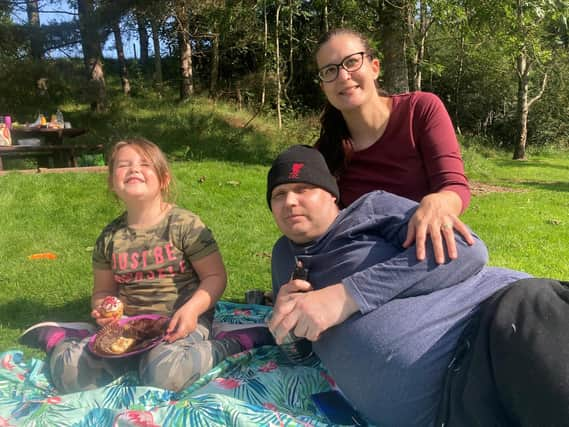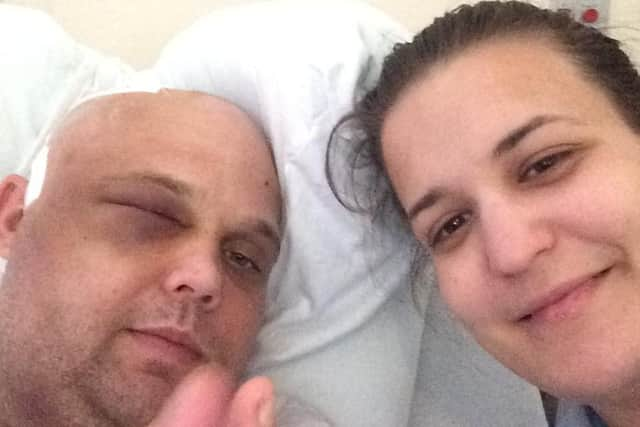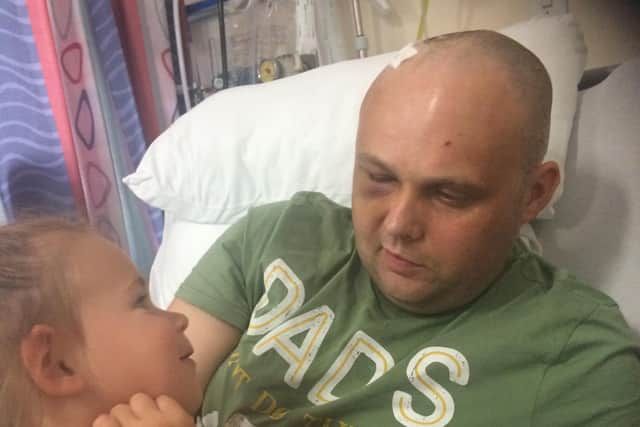Young dad told he has months to live after cancer treatment delayed due to Covid-19


Neil Matheson, 36, from Dundee, was given the ‘impossible’ choice in March to continue with treatment for a grade 4 brain tumour and risk contracting the virus or wait until infection rates were lower and it was safer to do so.
He and his wife Emőke, also 36, decided to postpone treatment, but have now been told that the cancer spread so much during the lockdown period that treatment is no longer possible.
Mr Matheson has been given just six months to live.


Advertisement
Hide AdAdvertisement
Hide AdHe is now crowdfunding to be able to take part in a ‘lifeline’ clinical trial at a private clinic in London.
The couple have a five-year-old daughter, Isabelle.
"We are continuing to fight and have found a private clinic in London, which is willing to take Neil on a clinical trial,” said Ms Matheson.
"We are both only 36 and should be enjoying life as a family. We have tried to protect Isabelle from the whole truth of the situation but she is aware that her dad isn’t well and talks about the ‘monster’ in his head.


"Before we were affected by this awful disease, I had no idea how many others were struggling with brain tumours. I have read many heart-breaking stories of other families facing the same devastating outcome.”
Mr Matheson began experiencing symptoms in 2017, which worsened until in 2018 he was in more pain than ever and his vision was blurred. He went to get an eye test and was referred to Ninewells Hospital, where an MRI scan revealed an aggressive and incurable brain tumour, known as a glioblastoma multiforme (GBM).
The prognosis for this type of tumour is very short, with an average survival of just 12-18 months.
Mr Matheson was able to have an operation, and 100% of the tumour was removed. He then progressed through an intensive course of chemotherapy, and received several ‘stable’ scans.
But the couple received bad news in March 2020, before lockdown was announced, when an MRI scan showed the tumour was growing.
Advertisement
Hide AdAdvertisement
Hide AdMr Matheson was due to start a different course of therapy, but before it could begin lockdown was announced. Having elected not to undergo the treatment during lockdown, his next scan in May showed the tumour had spread to the back of his brain.
He is now blind in the left side of both his eyes, and is struggling to walk.
The couple are working with Brain Tumour Research to raise awareness of brain tumours and their effects.
Hugh Adams, Head of Stakeholder Relations for Brain Tumour Research, said: “The pandemic has been impactful on the clinical pathway for many cancer patients and Neil and his family have been placed in a truly dreadful situation. How desperate that they have had to make these choices.
“We must do what we can to ensure that Covid does not completely disrupt the care for brain tumour patients and that the research and clinical trials that will improve options and outcomes for patients, which are currently in jeopardy, are able to continue.”